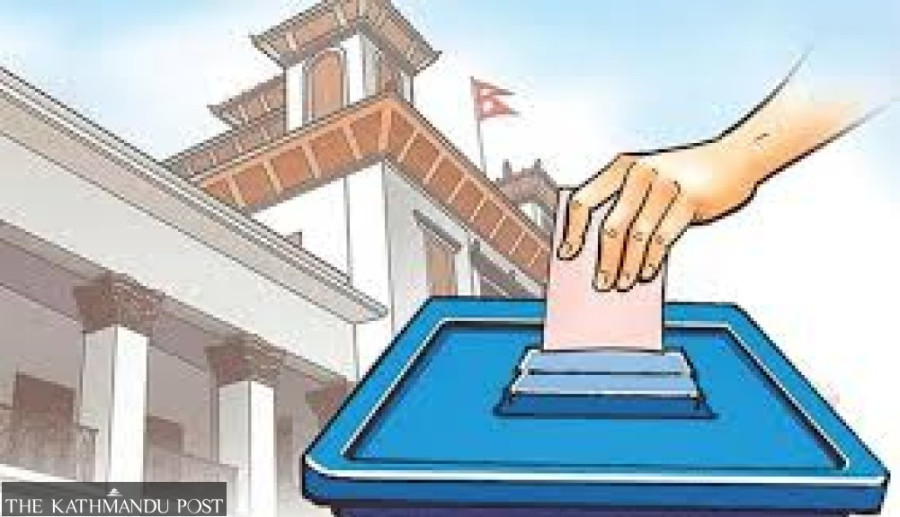National
Major parties signal readiness for polls if ‘fair conditions’ ensured
Leaders demand a free and fearless environment but say their parties have yet to make official decisions on poll participation.
Ganga BC
Nepal’s major political parties have said they are prepared to go to the polls if they are conducted in a free and fair environment.
Stressing that the mandate must be sought within the announced timeframe, leaders have noted that their parties are yet to take formal decisions.
Eight parties—including the Nepali Congress, CPN-UML, CPN (Maoist Centre), Janata Samajbadi Party, and CPN (Unified Socialist)—have recently stood together, opposing the dissolution of the House of Representatives as unconstitutional.
Prime Minister Sushila Karki, appointed on Friday, has already dissolved the House and announced that parliamentary elections will be held in six months, on March 5, 2026.
Nepali Congress General Secretary Gagan Thapa has made an appeal to Congress party members to orient their all activities towards the election, support the interim government in holding the polls on the scheduled date and also to alert if there are any activities against holding elections on time.
“As a responsible democratic party, we must ensure that the elections are held on time. Let us support the government that has shouldered the responsibility of conducting the elections,” Thapa wrote on social media platforms on Monday evening. “If the government strays from, or gets confused about, this core responsibility, we must hold it accountable.”
Let us not forget that the main national responsibility at present is to conduct timely, free, and fair elections in a fearless environment and thereby bringing the constitution and democracy back on the right track, he added.
Senior Congress leader Arjun Narasingh KC said the interim government’s first task is to create a trustworthy environment for elections. “If the elections are free and fair, parties will participate and test their mandate. We must return sovereignty to the Nepali people,” he said.
KC added that parties should not fear going before the public, acknowledging past mistakes, because “only periodic elections can keep democracy strong”.
The UML, though willing to contest, has expressed doubts over whether elections can truly be impartial. “If the conditions for elections are met, parties will participate,” said UML Deputy General Secretary Pradeep Gyawali. “But if voters cannot feel safe, then the election has no meaning.”
UML Secretary Gokarna Bista added that pressure must be placed on the government to ensure polls are held on schedule.
For the Maoist Centre, the issue is clearer. Senior Vice-chair Narayan Kaji Shrestha declared that holding elections on the announced date was the central priority.
“Only by going to the polls on time can we defend the constitution and democracy,” he said, adding that the party was united on this.
Maoist Centre’s Deputy General Secretary Janardan Sharma echoed the sentiment, calling the President’s announcement “positive” but stressing the need for certainty that polls would take place.
Other parties also weighed in. Rastriya Swatantra Party General Secretary Kabindra Burlakoti emphasised that the interim government must hold elections within six months and ensure a peaceful transfer of power. He urged action against corruption and impunity, while pushing for reconstruction and economic recovery.
Unified Socialist Vice-chair Beduram Bhusal said his party had not yet decided but would not oppose elections if they were credible.
Janata Samajbadi Party leader Manish Suman confirmed that his party supports the interim government and will participate in the polls. “We did not support Sushila Karki for nothing,” he said. “The government’s main focus must be to deliver elections.”
Despite their differences in tone, most parties agree that the interim government’s core responsibility is to guarantee free and fair polls. Until then, scepticism remains over whether the country can truly move towards a free and fearless electoral environment.




 15.12°C Kathmandu
15.12°C Kathmandu















